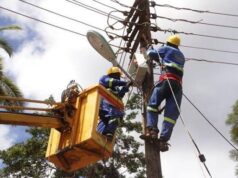
Oikusdat, a pioneering real estate technology venture based in Lagos, has disclosed that over 60 percent of property listings in Nigeria are erroneous, lacking crucial information such as pricing, ownership details, and status updates.
In a conversation with The PUNCH, the Chief Executive Officer of Oikus, Israel Ihaza, pointed out that Nigeria’s real estate arena is among Africa’s most vibrant, spurred on by swift urbanization and overseas investments. However, underlying this promising landscape is a fundamental flaw—a data deficit that breeds deceit, escalates costs, and diminishes trust.
He expressed, “An in-depth analysis at Oikus of more than 50,000 active property listings in Nigeria found that nearly 62 percent were devoid of essential details like accurate pricing, current status updates, or validated ownership. This partial data cultivates a marketplace where buyers are left in the dark, investors abroad feel insecure, and agents squander precious time pursuing fruitless leads.
“We also conducted a survey to thoroughly gauge the human implications of this data deficiency. The findings were eye-opening: 55 percent of participants were women, a demographic often disproportionately affected by misinformation during property searches.
About 52 percent revealed they still depend on agents to finalize transactions, underscoring the minimal strides digital platforms have made in fostering genuine trust.
Additionally, 61 percent confessed to being shown properties that did not correspond to their online listings, illuminating the extent of false or misleading information prevalent in the market.”
According to him, the data void within Nigeria’s property sector carries severe ramifications that transcend mere inconvenience.
“It distorts the entire housing ecosystem,” Ihaza elaborated. “In the absence of credible data, pricing turns arbitrary and erratic, complicating the process for buyers and renters to ascertain fair value. This verification gap fuels inflation in the housing market, as there are no reliable benchmarks to facilitate reasonable cost estimates. The outcome is a deterioration in housing affordability, culminating in a market that appears unpredictable and unregulated.
“For Nigerians abroad, who funnel billions of naira annually into the economy, this lack of verified information presents a profound investment risk. Many are eager to invest in real estate in their homeland, yet are disheartened by concerns over fraud, title issues, and untrustworthy agents. Without access to credible listings and transparent property data, they find themselves excluded from a market that could otherwise serve as a steady and lucrative investment opportunity.
“The challenge extends further to asset tracking. A frail property data system complicates ownership verification, leaving room for duplication, forgery, and various forms of fraud. This, in turn, undermines confidence in property transactions, prolongs due diligence processes, and frequently results in costly legal conflicts. Essentially, the lack of structured records undermines the very foundation upon which a reliable housing market should be established.”
Related News
FG urged to monetize oil, gas reserves before demand peaks
EU, Nigeria seal N320bn credit deal for agriculture boost
Be fearless, break barriers, Natasha, others urge girls
Ihaza further commented that developers and agents at times capitalize on the veil of obscurity created by this data deficit.
“Without transparent pricing or readily accessible records,” he continued, “they may inflate budgets or introduce concealed costs that elevate housing expenses. This inequitable advantage not only diminishes consumer trust but also stifles healthy competition within the industry. When data remains concealed, inefficiency and corruption flourish.
“Addressing this deficit goes beyond mere digitization or the implementation of advanced technology; it is about reconstructing trust and ensuring accountability. Verified data empowers buyers and tenants to search with certainty, reassured that property details are genuine. It provides diaspora investors the confidence to safely engage in Nigeria’s real estate market. Policymakers and regulators, too, can make more informed decisions based on accurate housing data, effectively influencing urban and economic development policies.
“In conclusion, verified property data serves everyone’s interest. It enables agents and developers to save time, bolster their reputation, and close deals more swiftly through legitimate listings. It instills public confidence in market stability and pricing authenticity. Ultimately, bridging the data gap will result in decreased fraud, fairer pricing, and a more open housing sector that people can genuinely trust.”
The African Real Estate Society recently cautioned that inadequate and fragmented data remains a significant barrier to housing finance, investor confidence, and sustainable growth within Nigeria’s real estate sector.
The President of the International Real Estate Society, Omokolade Akinsomi, underscored this during the African Real Estate Society’s 24th Annual Conference recently held in Lagos.
He stated, “Central to Nigeria’s housing discourse is the issue of data, or rather, the absence of it. For years, the country has wrestled with a housing deficit estimated to be between 17 and 22 million, a figure first brought to light under the tenure of the former Minister of Works and Housing, Babatunde Fashola. However, stakeholders continue to question the validity of these statistics.
“As one speaker pointed out, it is misleading to compare a villager content in a modest home with someone residing in the luxury of Banana Island. The genuine issue is not simply a lack of houses, but the scarcity of contextually relevant, affordable housing data that accurately reflects the diverse realities of Nigerians across various income levels.
“This absence of dependable data creates substantial impediments. Without it, obtaining funding becomes complex, housing finance remains out of reach, and the supply chain for materials stays uncertain.”











